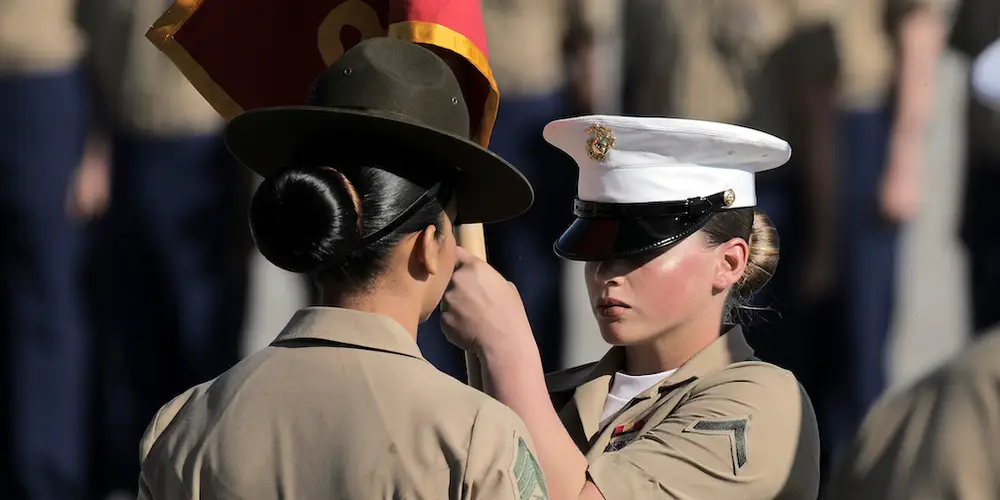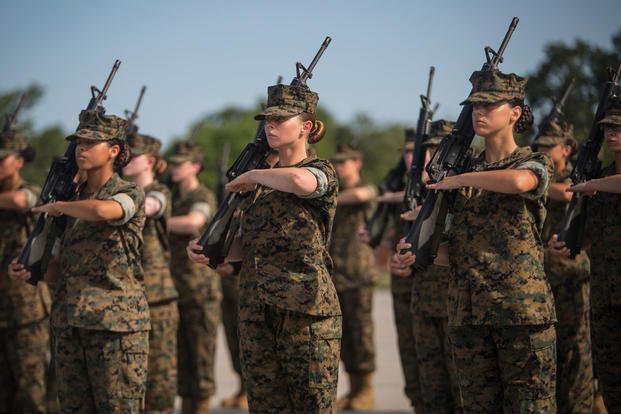
Cpl. Vivien Alstad
New York– The history of women in the military is a long one. For the past 200 years, women have been permitted to join the armed forces, and have broken barriers to do so. Today they serve in combat roles and leadership positions worldwide. Even as far back as the Revolutionary War, women contributed to the cause by serving as medics and aids to the sick and fallen. It was quite common to see the sisters, wives, and daughters of soldiers following camps, providing cooking services, doing laundry, and more. Even roles of leadership have been occupied by women.
In France, Joan of Arc’s role in the siege of Orléans and the coronation of Charles VII of France during the Hundred Years’ War against England is still talked about and she is regarded as a heroine to this day.
Former slave and abolitionist Harriet Tubman served in the union army as a soldier and spy during the Civil War. She also became the first woman to lead an armed military operation in the Combahee Ferry Raid.
There are numerous examples of extraordinary women throughout history to draw from, however, the role of women in the military as a whole reached a turning point at the beginning of the 20th century; World War I is particularly significant because it was the first time women were permitted to openly serve. By 1918 the U.S. Army Nurse Corps had over 3,000 American nurses deployed to British-operated hospitals in France. These nurses risked their lives working in dangerous conditions near the front lines, caring for service members and civilians alike, while tending to the health and safety of Allied troops.
Now, in 2022 a woman is leading an entire military branch for the first time. Linda Lee Fagan is a United States Coast Guard admiral who serves as the 27th Commandant of the Coast Guard. Meet Coast Guard Admiral Linda Fagan Fagan’s accomplishment is just a rung on the ladder of success for women in the armed forces. Commander Candice Tresch, a public affairs officer for the U.S. Navy, shared her thoughts on some of the barriers women have to overcome in conjunction with balancing their military careers.
“In today’s military, gender discrimination isn’t an overt exclusion as it was for women who served before me, where law and policy limited their service to our nation,” said Tresch. “For my generation, it more often comes in the form of navigating the challenge of balancing societal norms with a career.”

Societal Norms
Societal norms for women include getting married, cooking, cleaning, and being the primary caregiver of children. This may be problematic as military life consists of frequent travel and changing of permanent duty stations. The amount of family support structure typically available for the average military mother decreases exponentially due to the constant relocations. Tresch shared some of her struggles as a young mother in the force.
“At one command, I was geographically separated from my husband who was also pursuing his career. I had our two young children with me,” said Tresch. “My office was mostly men and those with children, also had wives that took on the role of primary parent, at least during working hours. I found myself having to ask to reschedule or skip, meetings that were scheduled to start at 4 or 4:30 p.m. because I had to pick up my children from daycare. To compensate, I worked remotely after they went to bed. Sometimes I completed assignments at 2 in the morning.”
Tresch shared that she just saw her struggle as something all of her brothers and sisters in service had to go through. A male peer reminded her just how hard she was working. Service members are constantly reminded to remain at a particular standard to serve their country effectively. The pressure to prove competency and present oneself as a valuable contribution to the team can be heightened for women, making it dually more important to have an example, or someone to look up to, during service.
“The first woman Admiral I worked for was Rear Adm. Ann Phillips,” said Tresch. “Watching her navigate leading a strike group was an experience that shaped my understanding of the Navy. She led with a keen knowledge of the landscape, strength, and compassion.”
Today Candice Tresch is a Commander, recently promoted to the rank of Captain in the U.S. Navy. She attributes some of her success to the belief that it was possible. That seed of hope was planted by women like Admiral Fagan and others she has seen reach their full potential in a world dominated by men.
“I think one of the impacts Admiral Fagan’s promotion has, is that it moves towards normalizing the success of women, in the eyes of both men and women,” said Tresch. “It also pays homage to all who paved the way. But mostly, it honors her work and skill and dedication that she has put in for decades.”
Thumbnail Credits: Cpl Vivien Alstad
Sources
- Adelola Tinubu from Current Affairs Times interviewed Commander Candice Tresch, U.S. Navy
- Meet Coast Guard Admiral Linda Fagan





